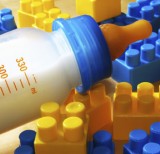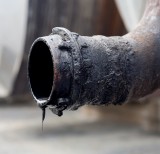
Safeguarding Public Health and the Environment

Top 400 Taxpayers See Tax Rates Rise, But There’s More to the Story
As Americans were gathering party supplies to greet the New Year, the Internal Revenue Service released their annual report of cumulative tax data reported on the 400 tax r...
read in full
Chlorine Bleach Plants Needlessly Endanger 63 Million Americans
Chlorine bleach plants across the U.S. put millions of Americans in danger of a chlorine gas release, a substance so toxic it has been used as a chemical weapon. Greenpeace’s new repo...
read in full
U.S. Industrial Facilities Reported Fewer Toxic Releases in 2014
The Toxics Release Inventory (TRI) data for 2014 is now available. The good news: total toxic releases by reporting facilities decreased by nearly six percent from 2013 levels. Howe...
read in full
Methane Causes Climate Change. Here's How the President Plans to Cut Emissions by 40-45 Percent.
UPDATE (Jan. 22, 2016): Today, the Bureau of Land Management (BLM) released its proposed rule to reduce methane emissions...
read in full
Living in the Shadow of Danger: Poverty, Race, and Unequal Chemical Facility Hazards
People of color and people living in poverty, especially poor children of color, are significantly more likely...
read in full
A Tale of Two Retirements: One for CEOs and One for the Rest of Us
The 100 largest CEO retirement funds are worth a combined $4.9 billion, equal to the entire retirement account savings of 41 percent of American fam...
read in full
Gasping for Support: Implementation of Tougher Air Quality Standards Will Require New Funds for State Agencies
New scientific research shows that the current levels of...
read in full




 The so-called Regulatory Freeze for Jobs Act,
The so-called Regulatory Freeze for Jobs Act,  April will mark the two-year anniversary of the BP Deepwater Horizon oil spill disaster that killed eleven people, injured seventeen others, and released an estimated 4.9 million barrels of oil into the Gulf of Mexico. On March 16, the Senate passed a widely supported measure that would section off 80 percent of the fines BP has paid and direct those funds to the five Gulf states impacted by the spill.
April will mark the two-year anniversary of the BP Deepwater Horizon oil spill disaster that killed eleven people, injured seventeen others, and released an estimated 4.9 million barrels of oil into the Gulf of Mexico. On March 16, the Senate passed a widely supported measure that would section off 80 percent of the fines BP has paid and direct those funds to the five Gulf states impacted by the spill. The U.S. Environmental Protection Agency (EPA) is reviewing the Consumer Confidence Report (CCR) rule, a policy mandating that public water systems provide annual reports to consumers on the quality of local drinking water. The resulting reports have been criticized for being overly technical, complex, and difficult for the general public to understand or act upon.
The U.S. Environmental Protection Agency (EPA) is reviewing the Consumer Confidence Report (CCR) rule, a policy mandating that public water systems provide annual reports to consumers on the quality of local drinking water. The resulting reports have been criticized for being overly technical, complex, and difficult for the general public to understand or act upon.

 On Jan. 18, President Obama rejected the permit for the controversial Keystone XL pipeline project, which was sought by Canadian firm TransCanada and Big Oil interests. The Obama administration determined that more study was needed to see whether the project was in the long-term national interest of the United States. Communities along the proposed pipeline route that are concerned about public health and safety issues welcomed the administration's decision, even as Republican lawmakers vowed to continue fighting for the project.
On Jan. 18, President Obama rejected the permit for the controversial Keystone XL pipeline project, which was sought by Canadian firm TransCanada and Big Oil interests. The Obama administration determined that more study was needed to see whether the project was in the long-term national interest of the United States. Communities along the proposed pipeline route that are concerned about public health and safety issues welcomed the administration's decision, even as Republican lawmakers vowed to continue fighting for the project. The third-party audit system, in which private companies take over responsibility for inspecting worksites and production facilities, has been shown to expose Americans to significant health and safety risks while eating, working, and breathing.
The third-party audit system, in which private companies take over responsibility for inspecting worksites and production facilities, has been shown to expose Americans to significant health and safety risks while eating, working, and breathing.



